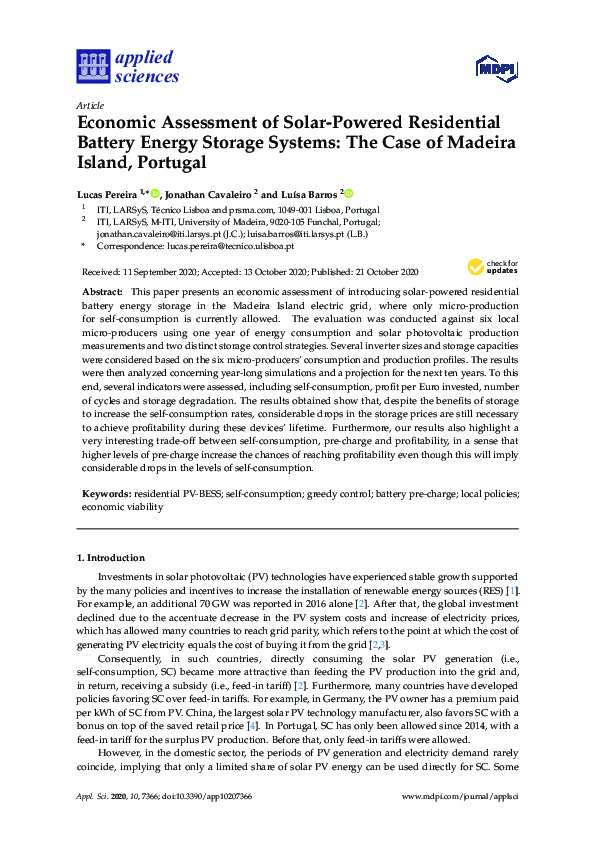Economic Assessment of Solar-Powered Residential Battery Energy Storage Systems: the case of Madeira Island, Portugal
Abstract
This paper presents an economic assessment of introducing solar-powered residential battery energy storage in the Madeira Island electric grid, where only micro-production for self-consumption is currently allowed. The evaluation was conducted against six local micro-producers using one year of energy consumption and solar photovoltaic production measurements and two distinct storage control strategies. Several inverter sizes and storage capacities were considered based on the six micro-producers’ consumption and production profiles. The results were then analyzed concerning year-long simulations and a projection for the next ten years. To this end, several indicators were assessed, including self-consumption, profit per Euro invested, number of cycles, and storage degradation. The results obtained show that despite the benefits of storage to increase the self-consumption rates, considerable drops in the storage prices are still necessary to achieve profitability during these devices’ lifetime. Furthermore, our results also highlight a very interesting trade-off between self-consumption, pre-charge, and profitability, in a sense that higher levels of pre-charge increase the chances of reaching profitability even though this will imply considerable drops in the levels of self-consumption.

